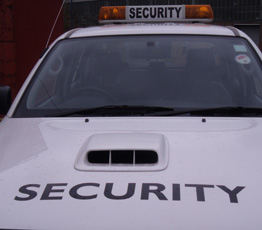Buyers who are serious about protecting the public and rooting out rogue elements in their security provision, while events are restarting in earnest after over a year of lockdowns, should ask their security companies to evidence their approval to the Code of Practice for the ‘Provision of Labour in the Security and Events Sectors’, say industry certification bodies.
In the interest of security providers and event organisers – and the public attending events – certification bodies operating in this sector and appointed by the UK regulator the Security Industry Authority (SIA) have come together to offer a Labour Provision scope of approval to their approved companies. The aim; protecting the public from rogue security workers, and security workers from risk of exploitation.
The National Security Inspectorate (NSI), ACM-CCAS and SSAIB share the view that the widest adoption of this Code of Practice for labour provision will best serve the public, in deterring rogue labour deployment.
As the three bodies say, anyone involved in the delivery of security services, particularly in the events sector, will know the industry is immensely flexible in managing licensed security officer resources to accommodate its clients. It does this through two proven methods a) sub-contracting and b) labour provision.
The difference between the two is often misunderstood or not even recognised by buyers. The second – Labour Provision – falls outside the scope of ACS (Approved Contractor Scheme), even for ACS approved companies – and therein lies the loophole, and the risk, the bodies warn. A risk particularly in the events sector where their security may unwittingly be being compromised by deployment of untrained, underpaid, unlicensed, non-security screened or worse – terrorism-motivated individuals.
The risk is compounded by less scrupulous operators undercutting the rest of the industry in labour provision at rates that may suggest immoral and, in some case, illegal employment practices. Social media posts evidencing this are not hard to find, as the certification bodies point out.
The 800-plus security companies who maintain ACS approval granted by the SIA are mindful that ACS signals to buyers a degree of professionalism and competence they rely on. Yet as with all approval schemes the devil is in the detail, and in the case of ACS whilst robust in its assessment process, its reach is limited to contractors, and not their labour providers. Therein lies the ‘loophole’.
Identifying this as a growing concern over the last few years, and one which many in the sector recognise, NSI developed a Code of Practice which has enabled approved companies to specify approval to the Code as a requirement within their labour supply chain. NSI has also proposed the Code be adopted by BSI in a new industry standard.
The Code of Practice is now being adopted and offered by ACM-CCAS and SSAIB which will result in a wider reach of labour providers being required to hold approval.
Now, any company operating as a labour provider can apply for approval to this scope and will be audited annually against the requirements which include such checks as: PAYE being operated for all staff, National Minimum or Living Wages is being paid, holiday pay and pension being provided, Identity and Right to Work checks, screening to BS 7858 and SIA badge checks.
The three assessing bodies will be requiring all approved companies to use only labour providers approved to the Code of Practice or audit them to the requirements of the Code – and evidence it – as part of their own approval.










